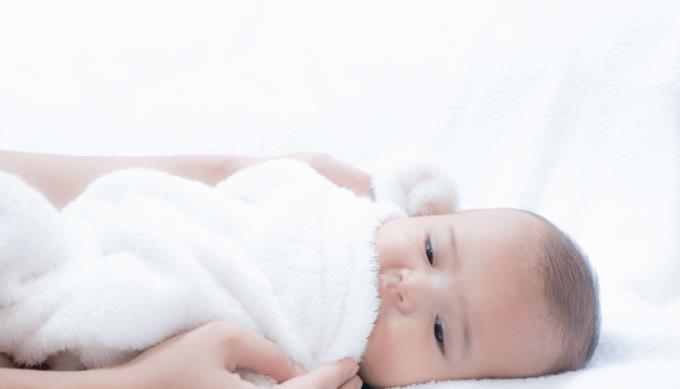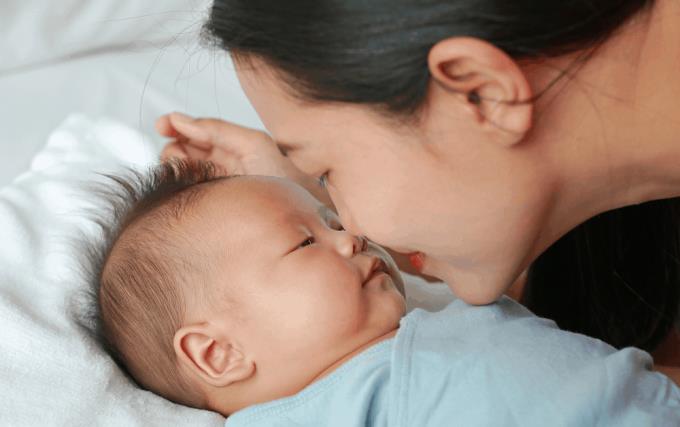Ways to determine an infants caloric needs

Learn how to determine your baby’s caloric needs, including the calories in breast milk and formula, to ensure your infant gets the right nutrition for healthy growth.
Jaundice can be caused by a variety of causes, from cholestasis to more serious conditions.
If suddenly one day you notice that your baby has yellow eyes and jaundice, do not be too alarmed because this is most likely caused by cholestasis. Approximately 50% of newborns experience this phenomenon and usually go away on its own, but there are still more severe cases.
Jaundice is common in babies and can happen if the bilirubin levels are high. This is a yellow pigment that is produced during normal breakdown of red blood cells. In toddlers and adults, the liver is responsible for bilirubin processing and then excreted through the intestinal tract. However, the infant's liver is still in its developmental stage and may not be able to remove bilirubin and cause bile buildup.
Infants are at increased risk of cholestatic jaundice when:
Premature babies (babies born before 37 weeks)
Infants are not getting the required amount of milk
The infant's blood type is incompatible with the mother's blood type.
If the infant's blood type is incompatible with the mother, the baby's body develops a buildup of antibodies that can destroy its own red blood cells. This is the cause of the sudden increase in bilirubin levels and a yellowing of the baby's eyes.
In addition, some other causes are at risk including:
Infection
Problems in the liver
Lack of enzymes
Bruising at birth or internal bleeding.

Besides jaundice, signs of cholestasis include:
Fever
Poor suckling
Asleep
Dark urine
The limbs and abdomen turned yellow
Light -colored stools (Breastfed babies should have greenish-yellow stools and bottle-fed babies should be dark yellow).
Doctors have advised that the baby should be screened for cholestasis 3 - 5 days after birth and before discharge because at this time, the infant's bilirubin concentration will reach at highest level. The diagnosis of cholestasis causing a jaundice in a newborn is often based on physical appearance. However, the severity of the condition will be determined by measuring the concentration of bilirubin in the blood.
If jaundice persists for more than 2 weeks, your doctor will want to do more blood tests and urine tests to check for potential disorders. However, for a well-breasted infant and still gaining weight steadily, this may be considered normal.

Mild hyperthyroidism usually goes away on its own when the baby's liver begins to mature. If it gets worse, the baby may need other treatments, such as phototherapy. This is a fairly common and highly effective form of healing by using light to break down bilirubin in the baby's body.
In very serious cases, the doctor will recommend a blood transfusion. This method works to replace damaged blood with healthy red blood cells, thereby increasing the number of red blood cells and lowering the bilirubin concentration. If the baby has jaundice that is not caused by cholestasis, he or she may be treated with medicine or even performed surgery.
If the phenomenon of newborns with jaundice caused by cholestasis and not treated promptly, the baby may have complications such as:
Jaundice: A potentially fatal syndrome if acute bilirubin brain causes permanent damage.
Acute bilirubin encephalopathy: This condition occurs due to the accumulation of bilirubin in the brain and is toxic to brain cells. Signs of illness include fever, drowsiness, screaming, poor feeding, a bent body or neck.
Other serious but rare complications include deafness and cerebral palsy.
The best way to reduce the risk of newborn babies developing jaundice from cholestasis is to ensure they are well fed. During the first week or so, breastfed infants should have 8-10 breastfeeds a day. For babies using formula, feed them about 30-60 ml every 2-3 hours. In addition, parents also need to pay close attention to observe the baby carefully in the first 5 days after birth.
Usually, the phenomenon of neonatal yellow eyes is nothing to worry about. However, take your child to the hospital when you notice the following:
Fever higher than 38 ° C
The baby's skin is dark yellow
Often crying, accompanied by poor feeding and slow response to surroundings.
Hopefully the information provided has helped you understand the reasons why your newborn baby has yellow eyes. If you find that your child has abnormal symptoms, take him to the hospital for prompt examination and treatment.
Learn how to determine your baby’s caloric needs, including the calories in breast milk and formula, to ensure your infant gets the right nutrition for healthy growth.
Discover the top 5 smartest dog breeds in the world, including Border Collie, Poodle, German Shepherd, Golden Retriever, and Doberman Pinscher. Learn about their unique traits and why they are considered the most intelligent dogs.
Discover 7 nutritious and delicious ways to cook egg porridge for babies, including recipes with cheese, pumpkin, tomato, and more. Learn how to prepare baby-friendly egg porridge with our expert tips.
After a series of medical measures they obtained a complete human vascular system profile.
Watermelon is one of the fruits that many people love, not only cheap but also delicious, nutritious and refreshing in the summer. To get delicious watermelon pieces, show off your housewives, your artistic talents to cut beautiful pieces of watermelon.
aFamilyToday Health - The digestive system and body in each baby is different. Parents need to recognize notes to deal with when babies have a food allergy!
Babies need many factors for perfect development. aFamilyToday Health shares with parents things to keep in mind when babies are 8 weeks old so that parents can take care of their babies the best!
Babies need many factors for perfect development. aFamilyToday Health shares with parents things to keep in mind when babies are 18 weeks so that parents can take care of their babies the best!
Babies need many factors for perfect development. aFamilyToday Health shares with parents things to keep in mind when babies are 28 weeks old so that parents can take care of their babies the best!
Babies need many factors for perfect development. aFamilyToday Health shares with parents things to keep in mind when babies are 32 weeks old so that parents can take care of their babies the best!








